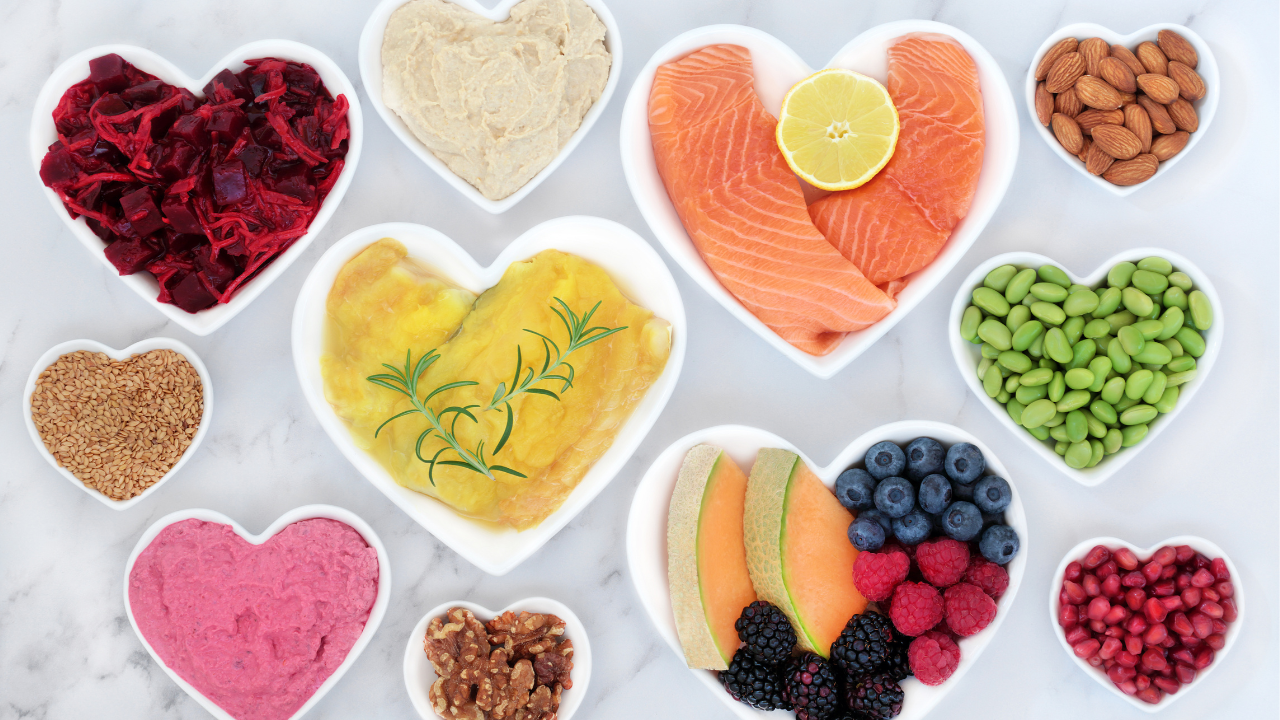5 Ways to Support Heart Health this Valentine’s Day!

Love is in the air this Valentine's Day and my guess is that you’re showing a little extra love to the people you care about. However, I’m here to let you know that Valentine’s Day shouldn’t just be about showing others love…
Valentine's Day is the perfect day to treat yourself and your body with some love too!
February is known for Valentine's Day, but did you know it's also American Heart Month? So, if you've never taken heart health seriously before, now is a great time to start!
Here are 5 ways to improve your heart health this Valentine’s Day:
Consume more heart-healthy foods. The heart is a very powerful muscle that requires the proper fuel to function properly. Whole grains, fruits and vegetables, and fish are excellent sources of nutrients that will help keep your heart healthy. Eating more of these foods can improve your overall health, both physically and mentally.
Exercise consistently. It’s important to choose activities that you enjoy. You're more likely to stick to a routine if you enjoy doing it. There is something for everyone out there, whether it's walking the dog, jogging through a local park, or morning yoga. To keep your heart healthy, we recommend that you exercise for at least 30 minutes five days a week.
Limit your sodium intake. Eating too much salt can result in high blood pressure, which is a risk factor for heart disease. Limiting salt (sodium) is an essential component of a heart-healthy diet. According to the American Heart Association:[1]
- A healthy adult should consume no more than 2,300 milligrams (mg) of sodium per day (about a teaspoon of salt!)
- Most adults should consume no more than 1,500 mg of sodium per day.
While reducing the amount of salt you add to food at the table or while cooking is a good first step, much of the salt you consume comes from canned or processed foods like soups, baked goods, and frozen dinners. Consuming more fresh foods and making your own soups and stews can help you reduce your overall sodium intake.
Limit unhealthy fats. To lower your blood cholesterol and lessen your risk of coronary artery disease, you should limit the amount of saturated and trans fats you consume. Atherosclerosis, or the formation of plaque in the arteries as a result of elevated blood cholesterol, can raise the risk of heart attack and stroke. Instead of butter, hydrogenated margarine and shortening, and coconut oil, opt for vegetable and nut oils. You can even try cholesterol-lowering margarine, such as Benecol, Promise Activ or Smart Balance.
Try stress-relieving activities. Most of us are unaware of how much stress our hearts endure on a daily basis. I get it, stress is an inevitable part of life… but it’s important to manage because it can cause tension and strain on your cardiovascular system. If you're stressed, try yoga, meditation, walking, or simply being quiet and still for 10 minutes. Write down your worries and let them go peacefully. This Valentine's Day, you could even treat yourself to a massage too!
I hope this blog post inspires you to show yourself and your heart some extra love this Valentine's Day.
References:
- How much sodium should I eat per day? www.heart.org. Retrieved January 30, 2023.


